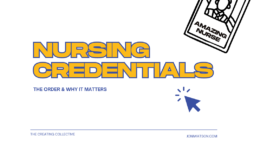This is part five of the Nursing Research Challenge.
The Article: Trinkoff, A., Johantgen, M., Storr, C., Gurses, A., Liang, Y., & Han, K. (2011). Nurses’ work schedule characteristics, nurse staffing, and patient mortality. Nursing Research, 60(1): 1-8.
The Big Idea: Nurses work crazy hours – 10, 12, and 16 hour shifts. Some nurses have mandatory overtime and call schedules, and some nurses work swing shifts – alternating between day and night shifts. Lack of sleep and decreased time away from the hospital impact nursing care. Staffing (e.g. patients per nurse) has been proven to impact patient mortality, but when staffing is controlled, does the nurse’s work schedule correlate to mortality, too?
Survey Says!: Most definitely. When researchers controlled for variables in staffing and hospital characteristics, they found nurses’ work schedules related significantly to patient mortality. Hospitals in which nurses reported working long hours or decreased time away from work (i.e. working two or more 16-hour shifts in a row, etc.) had more patient deaths from pneumonia. Lack of time away from work was also correlated with increased abdominal aortic aneurysm deaths. Presenteeism, or nurses working while sick, was significantly related with increased congestive heart failure patient mortality. And, acute myocardial infarction was significantly related to nurses’ weekly work burden, or hours per week and days in a row.
Quotable: “In addition to staffing, nurses’ work schedules are associated independently with patient mortality.”
“The continued vigilance required of nurses can be affected by excessive work hours, limiting their ability to detect adverse changes in patients in time to address them and prevent consequences.”
“Attention to work schedule is now warranted on the basis of the impact of scheduling on patients as well as nurses.”
So What? Again, breaks are good for nurses and patients. Nurses, managers, and the C-suite should think about nurses’ schedules as a patient safety issue and revise policies accordingly. And, if you’re reading this but aren’t a healthcare professional, it would be wise for you to know your nurse (or your healthcare provider’s) work schedule. You just might rethink a few things.





